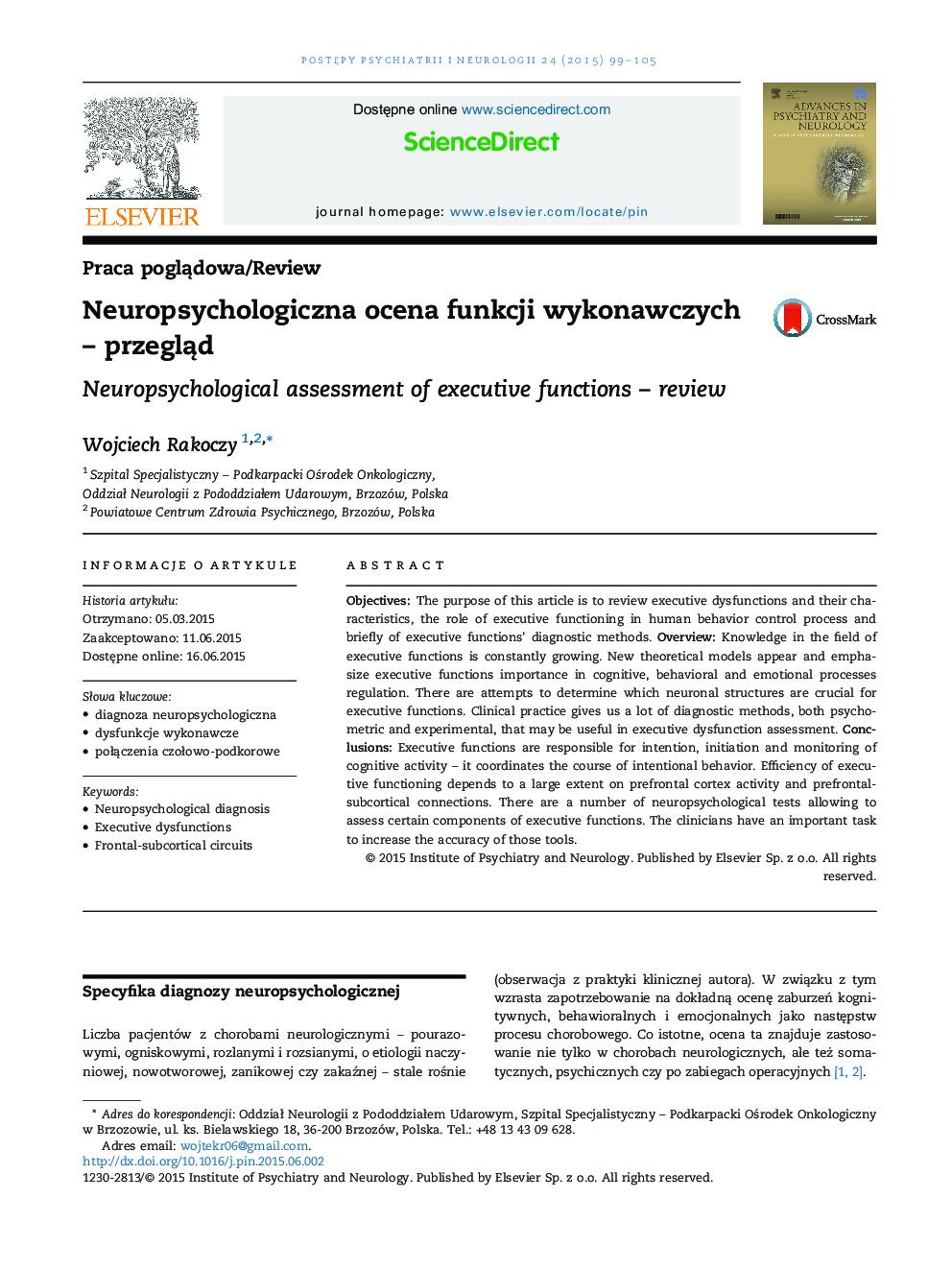| Article ID | Journal | Published Year | Pages | File Type |
|---|---|---|---|---|
| 331735 | Postepy Psychiatrii i Neurologii | 2015 | 7 Pages |
ObjectivesThe purpose of this article is to review executive dysfunctions and their characteristics, the role of executive functioning in human behavior control process and briefly of executive functions’ diagnostic methods.OverviewKnowledge in the field of executive functions is constantly growing. New theoretical models appear and emphasize executive functions importance in cognitive, behavioral and emotional processes regulation. There are attempts to determine which neuronal structures are crucial for executive functions. Clinical practice gives us a lot of diagnostic methods, both psychometric and experimental, that may be useful in executive dysfunction assessment.ConclusionsExecutive functions are responsible for intention, initiation and monitoring of cognitive activity – it coordinates the course of intentional behavior. Efficiency of executive functioning depends to a large extent on prefrontal cortex activity and prefrontal-subcortical connections. There are a number of neuropsychological tests allowing to assess certain components of executive functions. The clinicians have an important task to increase the accuracy of those tools.
